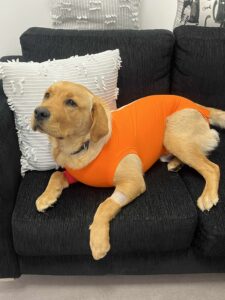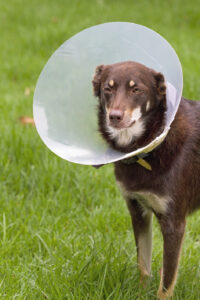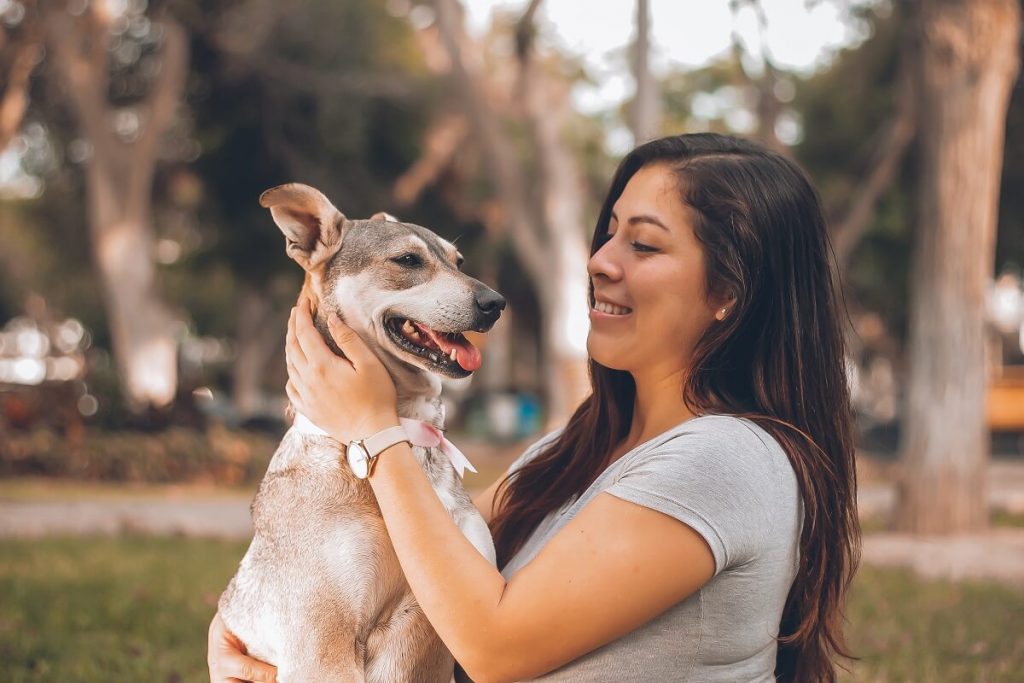When your pet needs to have an operation, it can be a worrying time. However, knowing what to expect will not only help put your mind at ease – it will also help to ensure the procedure runs smoother on the day.
In this blog, we take you through the key steps involved in surgery – including the preparations you need to take, what to expect on surgery day, and how to care for your pet post-procedure.
Preparing your pet for surgery
All operations will require your cat or dog to be placed under anaesthetic. Prior to their procedure, your dog or cat will need to fast overnight before being brought to the clinic the morning of the procedure. Water is fine during the night; however, this should also be stopped a few hours before you drop your pet off. When your pet is booked in for their operation, we will advise you on the exact time to stop offering water. Fasting is an important part of keeping your pet safe while under anaesthesia.
If your pet takes regular medication, you will also be advised whether to skip this on the day of the operation, or to take it as usual.
The day of your pet’s operation
Typically, we will ask you to bring in your cat or dog into our clinic at a specified time between 8am – 9am. This gives our vets plenty of time to perform a thorough physical examination of your pet to make sure they are fit to be operated on.
If your pet is over 7 years of age, we will also perform a blood test prior to their procedure as a further check that they are healthy enough to be sedated. We also offer – and recommend – this option for younger animals as well.
Once we are happy with the results of the check-up and blood test, we will place your pet under anaesthetic and commence the operation. For longer surgeries, or for animals that are unwell, we will also administer some IV fluids.
Post-surgery, our vet nurses will keep a close eye on your pet while they come round from the anaesthetic. Once they are a bit more alert, we will give you a ring to let you know how the operation went, and advise you when you can pick them up. Most of the time this will be later in the afternoon. We will also usually give your pet something to eat and drink to make sure they can tolerate it before sending them home.
Your pet’s aftercare

Your cat or dog will have been given pain relief prior to being picked up, so they may be a bit sleepy at first.
Regardless of the type of operation your pet had, it’s important that you follow the aftercare instructions we provide to you.
This will ensure they recover as quickly as possible and minimises any potential infections or other issues that can arise.
Key aftercare tips:
-
Isolate your pet from any small children or other pets – this is particularly important for the first 24 hours (this may be longer depending on the procedure performed)
- Discourage your pet from licking, biting or scratching their stitches. An e-collar or Recovery Suit is the best way to help prevent this from occurring, and a potential infection from developing
- Check the wound daily, and let us know if it appears to be red, or swollen or if you notice any bleeding
- Keep your pet quiet until the stitches come out. Take dogs for gentle walks on a lead only and try to keep cats from jumping on and off higher surfaces.
Experience you can trust
The Cameron Veterinary Services team have extensive experience in many types of surgeries, including desexing, lump removals, dental procures, caesareans and wound repairs. Our purpose-built vet clinic in Gawler East has a brand-new operating theatre, and a range of the latest diagnostic equipment that allows us to perform X-rays, ultrasounds and in-house blood and urine analysis.
To book an appointment, drop into our clinic at Springwood Place, call us on 08 8318 1801 or book online.





